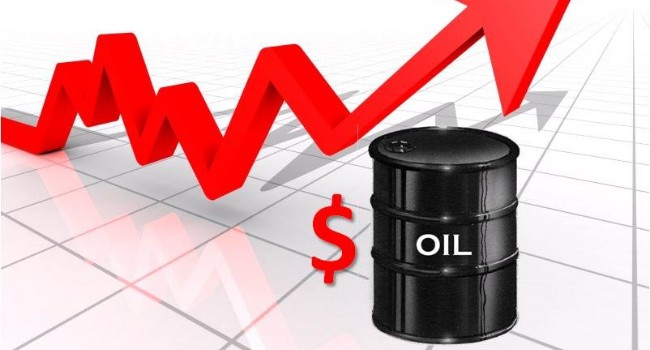Business
Big trouble for Nigeria as oil price nears $112 per barrel, highest since 2011

Nigeria’s economy is in big trouble as oil prices continue to rise, and it is now trading at above $111 the highest level since 2011.
The rising crude oil prices mean high subsidy payments for the Nigerian government to sell petrol below the international market rate.
It is now looking very much unlikely for the Nigerian government to sustain the N165 pump price and this could mean fuel scarcity currently being experienced in the country is not going away anytime soon.
On Wednesday morning, data from Reuters showed brent crude the benchmark of Nigeria’s oil was exchanging at 111.46 per barrel.
And the US West Texas Intermediate (WTI) crude was at $110.19 per barrel.
Read also: Buhari pledges to take advantage of rising crude oil prices
The astronomical rise in the oil price is driven by the growing concern of supply disruption which reached fever pitch in Europe, no thanks to the conflict between Russia and Ukraine.
With sanctions flying around Russia, European countries are not really concerned that one of the world’s oil giants will turn off its tap.
Nigerians to bear the pains of rising oil price
The rise in oil price could mean the fuel scarcity won’t go away anytime soon.
The Nigerian National Petroleum Corporation (NNPC) relies heavily on imports to meet the daily demands of over 60 million litres in the country.
The current international oil price means it will cost almost double the amount to import petrol when compared to the same period last year.
According to the most recent data from the Nigerian Midstream & Downstream Petroleum Regulatory Authority (NMDPRA) Nigeria had in its stocks as at November 29, 2021, 2.12 billion litres of PMS that could take 37.97 days to exhaust.
While the data is yet to be updated, 37 days from November 29, 2021, ended on January 6, 2022.
This explains why the NNPC was unable to remit a kobo to the federation account in January, as it was compelled to pay a high subsidy for petrol imported into the country which averaged $90 per barrel for the month.
With Oil now above $111 the worst awaits the Nigerian economy.
Join the conversation
Opinions
Support Ripples Nigeria, hold up solutions journalism
Balanced, fearless journalism driven by data comes at huge financial costs.
As a media platform, we hold leadership accountable and will not trade the right to press freedom and free speech for a piece of cake.
If you like what we do, and are ready to uphold solutions journalism, kindly donate to the Ripples Nigeria cause.
Your support would help to ensure that citizens and institutions continue to have free access to credible and reliable information for societal development.